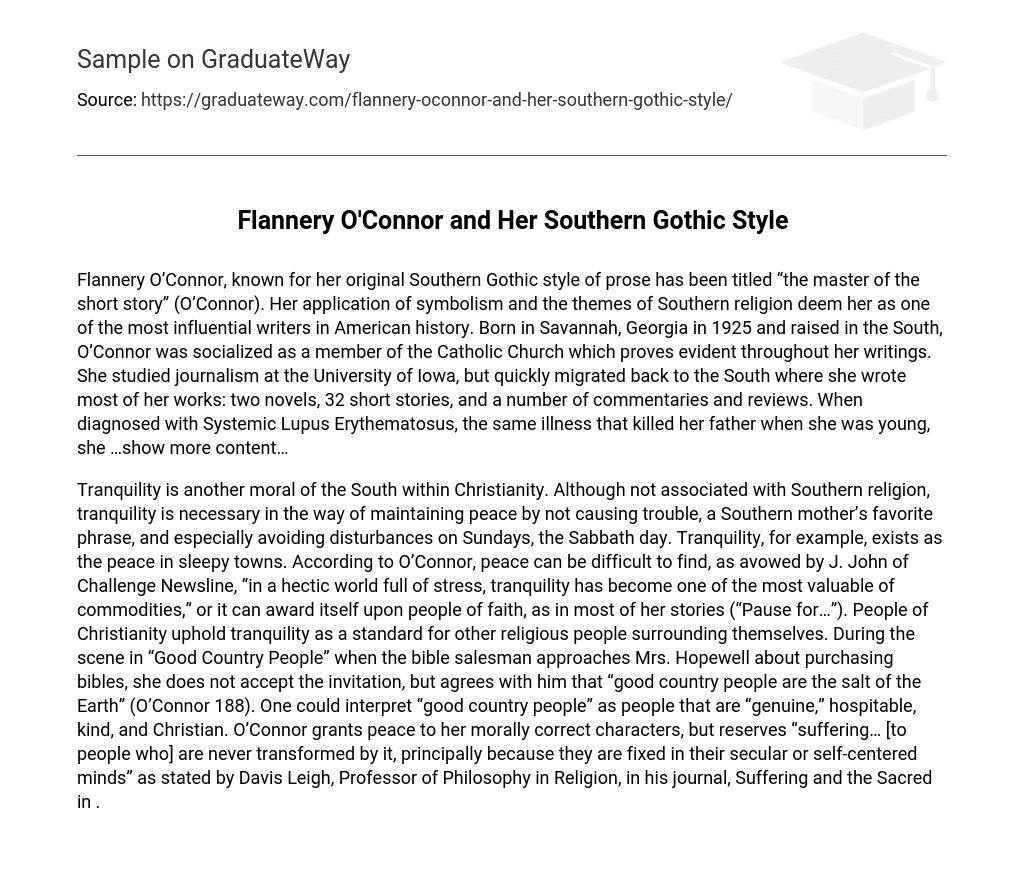Flannery O’Connor is known for her unique Southern Gothic style of prose and is often referred to as “the master of the short story” (O’Connor). Her use of symbolism and exploration of Southern religion make her one of the most influential writers in American history. Born and raised in Savannah, Georgia in 1925, O’Connor was immersed in the Catholic Church, which is evident in her writings. She initially studied journalism at the University of Iowa, but eventually returned to the South where she wrote the majority of her works, including two novels, 32 short stories, and various commentaries and reviews. O’Connor was diagnosed with Systemic Lupus Erythematosus, the same disease that took her father’s life when she was young, which significantly impacted her health and writing career.
Tranquility is a moral value that is emphasized in Christianity in the South. While it may not be directly associated with Southern religion, tranquility plays a significant role in maintaining peace and avoiding trouble. It is a phrase often used by Southern mothers and is particularly important on Sundays, which are considered the Sabbath day. In sleepy towns, tranquility represents a form of peace. According to O’Connor, finding peace can be challenging in today’s hectic and stressful world, making it a valuable commodity. However, people of faith can experience peace, as demonstrated in many of her stories (“Pause for…”). Tranquility is upheld by Christians as a standard for others to follow. In the scene from “Good Country People,” when a bible salesman approaches Mrs. Hopewell, she declines his offer but agrees with his statement that “good country people are the salt of the Earth” (O’Connor 188). This phrase can be interpreted as referring to people who are genuine, hospitable, kind, and Christian. O’Connor rewards morally upright characters with peace but reserves suffering for those who are resistant to change due to their secular or self-centered mindset, as explained by Davis Leigh, Professor of Philosophy in Religion, in his journal article “Suffering and the Sacred.”





